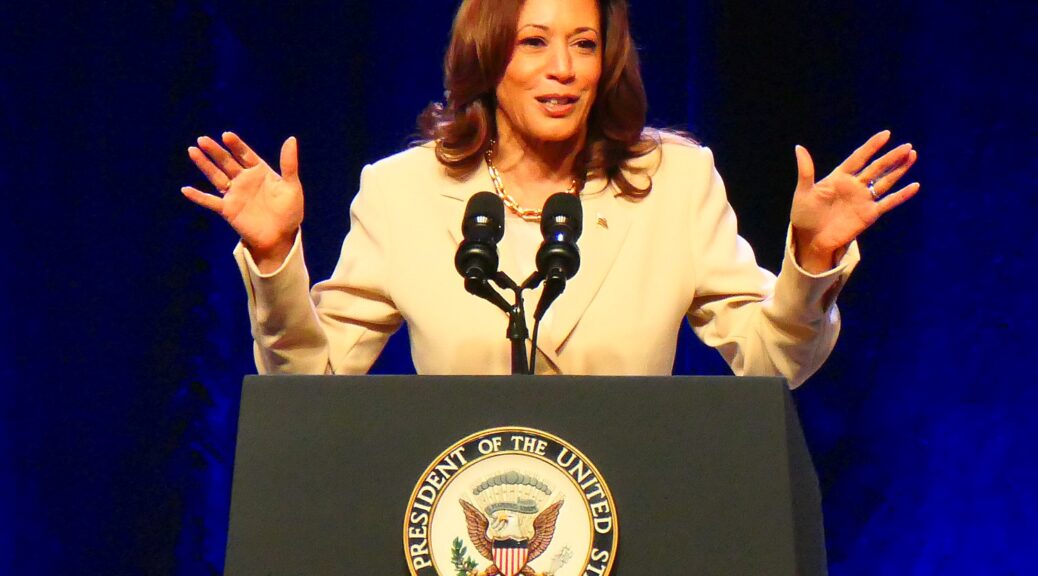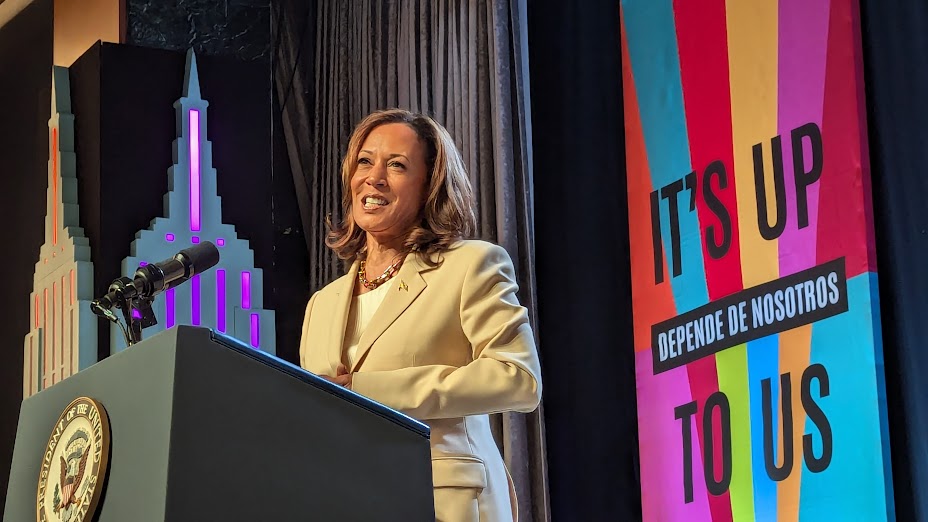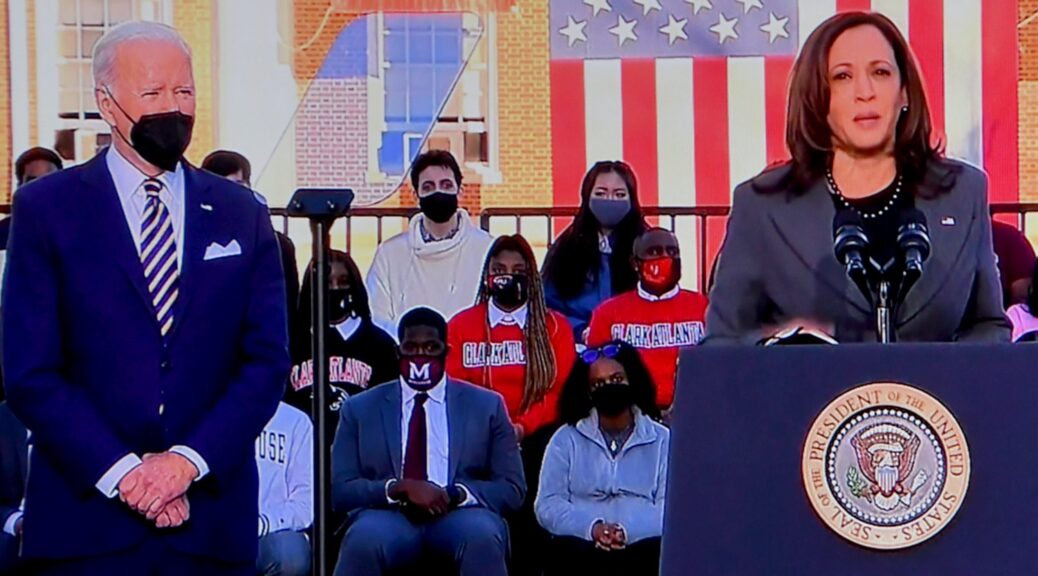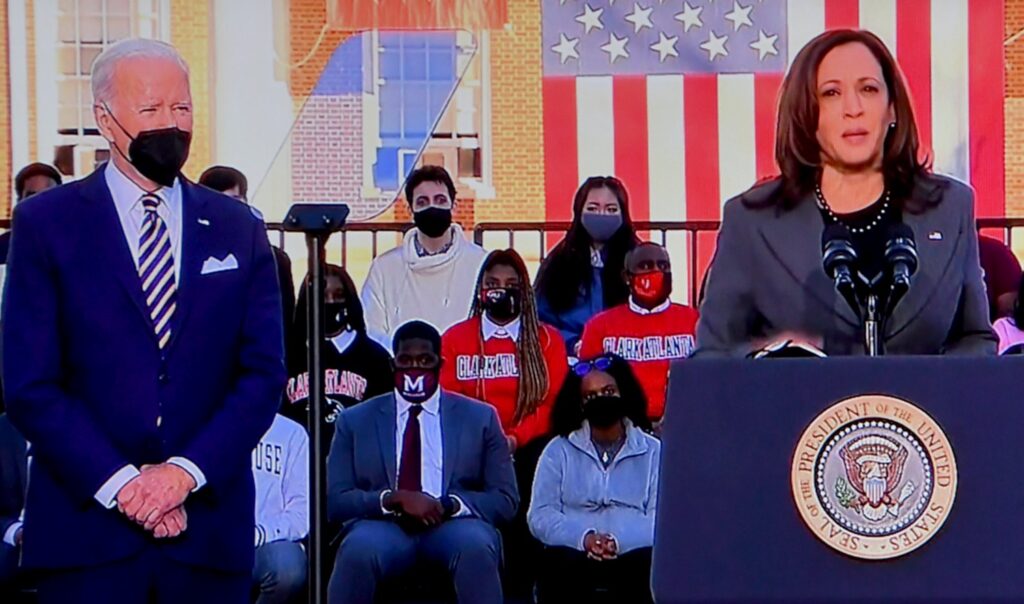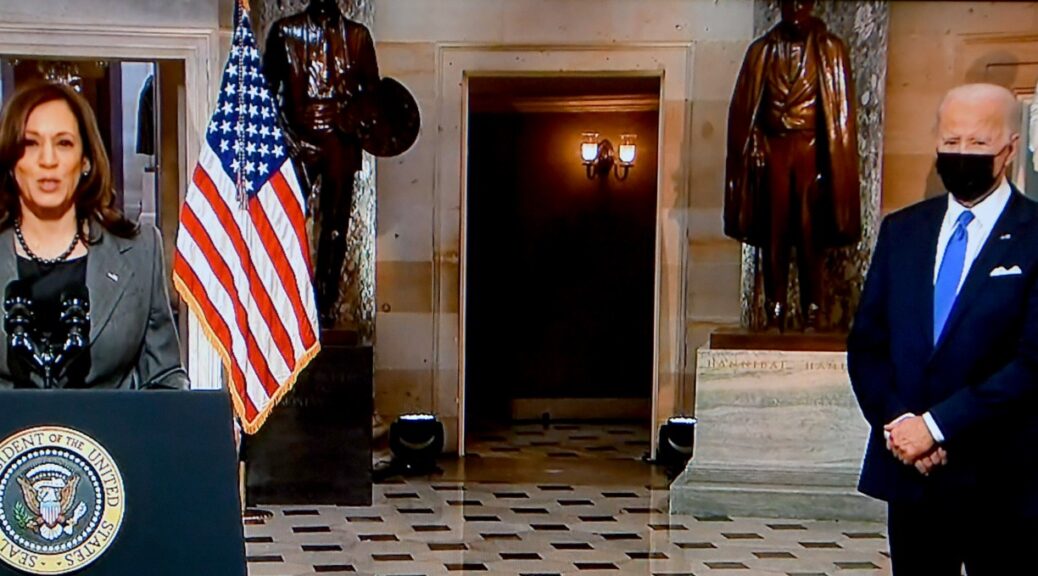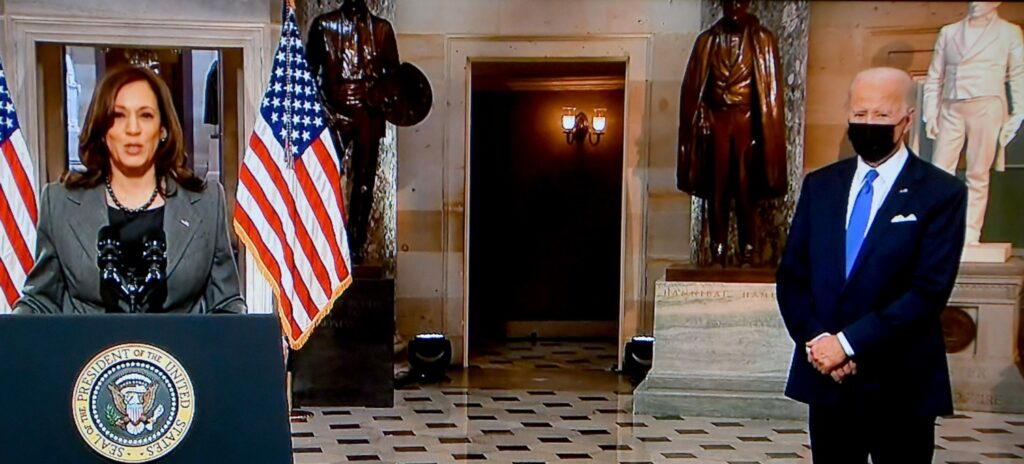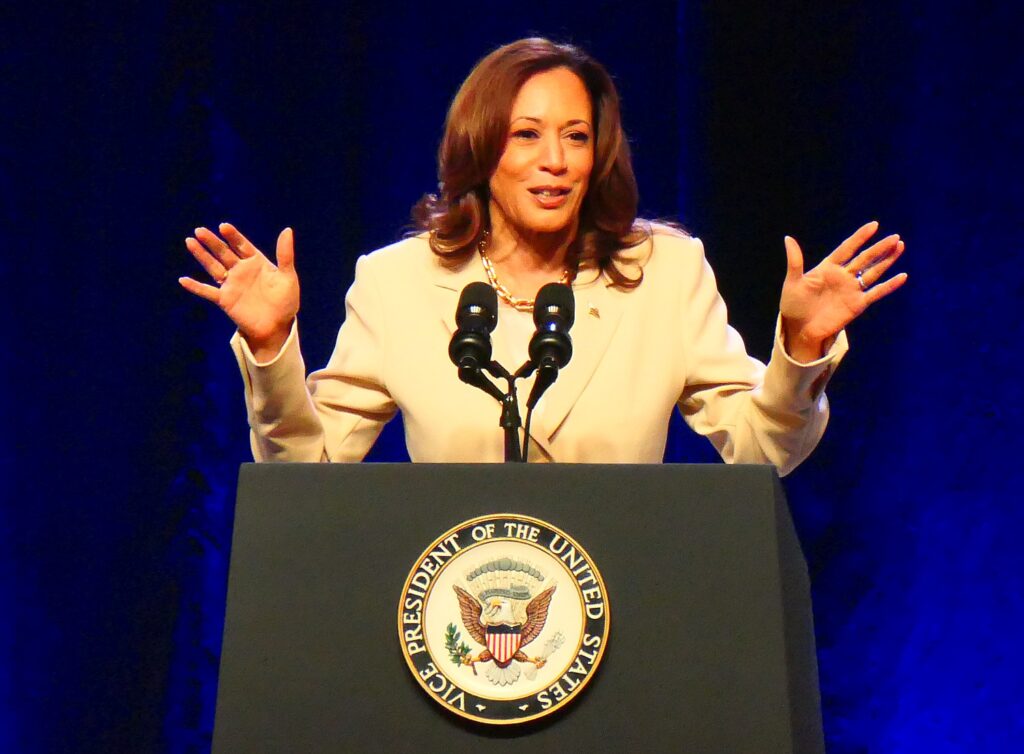
Critics suggest that Vice President Kamala Harris has not detailed her plans as president (while not seeking the same detail from Donald Trump). Here, Harris documents “A New Way Forward” to build American industrial strength, powered by American workers. She intends to use new America Forward Tax Credits to incentivize investment in strategic industries critical to U.S. leadership in the global economy, removing barriers, while creating well-paying union jobs. This fact sheet was provided by the Harris-Walz campaign: – Karen Rubin/editor@news-photos-features.com
Vice President Harris and Governor Walz are committed to building a stronger economy where everyone has an opportunity to chase their dreams and aspirations, and where the United States continues to out-innovate and out-compete the world in the 21st century. Today, they are releasing additional plans as part of their pragmatic agenda to invest in and continue to rebuild America’s industrial capacity. This strategy builds on their core priorities of lowering costs for families, restoring families’ basic economic security and ensuring the middle class continues to be a source of growth for our economy, while investing in American innovation and entrepreneurship.
Vice President Harris and Governor Walz know that building our capabilities requires investments in our workforce, foundational research, incentives to deploy new technologies, and reforms to build factories and facilities across America at scale and speed. Their plan will do that. They will empower American workers—including union workers and those without a college degree—to surge America’s lead in the industries of the future, revitalize manufacturing communities so that they are at the cutting-edge of manufacturing growth, and cut red tape so America can build more and faster. These efforts will enable the United States to maintain its competitive edge in the industries that are strategic to our economic and national security.
In Vice President Harris and Governor Walz’s vision of an Opportunity Economy, America vigorously invests in and competes for the future, through a strategy that insists on creating opportunity for all and leaving no areas or set of workers behind. Vice President Harris and Governor Walz are calling for a New Way Forward for the middle class—where America invests in the most strategic industries of the future, with a plan to ensure workers and communities share in the benefits of those investments.
The American people face a choice in this election between two fundamentally different paths for our economy. Donald Trump and J.D. Vance’s Project 2025 agenda would weaken the economy and hurt the middle class. Vice President Harris and Governor Walz’s plan will build up the middle class and make sure our economy works for everyone. They know the American economy is the most powerful force for innovation and wealth creation in human history. Their pragmatic approach to strengthening the middle class, supporting workers and unions, and driving our economy forward is grounded in the fundamental values of fairness, dignity, and opportunity.
Launching “America Forward”—To Build America’s Industrial Base and Lead in the Industries of the Future. Vice President Harris and Governor Walz will create an America Forward strategy to drive a new era in American industry and help deploy technologies and manufacture them at scale. Across America Forward investments, a Harris-Walz Administration will focus on making products in America and supporting workers, manufacturing communities, and energy communities. Their strategy will build an economy where all Americans have the chance to compete and succeed.
Vice President Harris and Governor Walz’s America Forward strategy will accelerate our progress, building on the historic investments in the Bipartisan Infrastructure Law, the CHIPS and Science Act, and the Inflation Reduction Act. Those landmark laws have already spurred billions of dollars of new private investment in emerging technologies and public funding for clean energy technologies, basic research, semiconductor manufacturing, and more.
Creating America Forward Tax Credits. To build America’s industrial base and continue to lead the world, Vice President Harris and Governor Walz are proposing America Forward tax credits targeting investment and job creation in key strategic industries essential to our economic growth and national security. The America Forward tax credits will be linked to the treatment of workers, ensuring the right to organize, and supporting investments in longstanding manufacturing, energy, and agricultural communities.
Investments that would benefit from the America Forward tax credits include, for example:
- Investments That Make Sure America—Not China—Leads in the Critical Industries of the Future. Vice President Harris and Governor Walz’s strategy is designed to maintain and extend America’s edge in industries of the future. This includes modernizing and reducing emissions in steel and iron production, developing biotechnology that can help produce critical medicines and new sustainable materials, investing in Artificial Intelligence (AI) innovation and building new data centers for AI, expanding clean energy manufacturing and innovation, revitalizing America’s semiconductor industry, investing in aerospace, autos, and other forms of transportation, and producing industrial tools and machines critical to our national and economic security. America cannot sit on the sidelines and cede leadership to nations like China, jeopardizing our national security. From her work on the development and implementation of the White House executive order on AI to her global leadership on AI safety and the convenings she has hosted with labor and civil rights leaders, Vice President Harris has always prioritized innovation that not only keeps America in the lead but that strengthens America’s workforce, protects consumers, and keeps Americans safe.
- Rewarding Investment That Brings All Areas and Workers Along. Vice President Harris and Governor Walz believe that no one who grows up in one of America’s great industrial or agricultural centers should be abandoned. The America Forward tax credits will provide significant additional benefits to investments made in longstanding manufacturing, energy, and agricultural communities, or longstanding steel and iron communities such as Pennsylvania’s Mon Valley. These new tax credits will also reward companies that work with unions and communities to support workers and to protect jobs.
Creating Opportunity for All Workers, Including Those Without a College Degree. Vice President Harris and Governor Walz believe that anyone with the skills to do a job should be able to get the job, whether or not they have a formal degree. There are tens of millions of good-paying jobs that do not require a college degree—and their plan to invest in America’s industrial capacity will create even more. They will address barriers holding workers without a degree back from working in jobs that they can succeed in and earning a good salary where they live.
Vice President Harris and Governor Walz pledge to eliminate unnecessary degree requirements and promote meaningful pathways for those without college degrees for 500,000 federal jobs—and challenge the business community to do the same. They will also support partnerships with businesses, unions, school districts, community colleges, and faith-based groups to expand access to high-quality, evidence-based programs and create millions of new training opportunities such as registered apprenticeships, pre-apprenticeships, joint-labor management partnerships, and other training opportunities that lead to a good job. In particular, they will set a goal to double the number of registered apprenticeships in America by the end of their first term—in industries ranging from advanced manufacturing to the trades to teaching to health care to cybersecurity and more, as well as a focus on opportunities for youth. Vice President Harris and Governor Walz will also continue to invest in America’s public schools and strengthen STEM education as we prepare the next generation of workers and researchers to compete globally. And they remain committed to cutting red tape by reducing barriers to occupational licensing across state lines, as well as ensuring that workers continue to have good-paying jobs and opportunities amid technological advances.
In addition, Vice President Harris and Governor Walz will reform our tax laws to make it easier for businesses to let workers share in their company’s success, including through broad-based employee stock ownership, profit-sharing plans, and comparable arrangements, with appropriate guardrails to ensure these plans benefit and protect workers.
Invest To Develop and Secure America’s Research Base. Vice President Harris and Governor Walz know that America’s edge in the development of new technologies arises from our ability to lead in basic research while also commercializing at scale. They are proposing a significant investment to shore up our national and economic security by making sure the United States—not China—leads in AI, quantum computing, blockchain, clean technology, biomanufacturing, semiconductors, and other key technology research areas. They will do this by scaling up and making permanent the National Artificial Intelligence Research Resource, a shared public research infrastructure to give startups, researchers, and students access to the most advanced computing power, data, and analytical tools, to surge responsible discovery and innovation in AI and allow them to compete with large, privately funded AI companies. They will also ramp up investments in the National Science Foundation, the Department of Energy’s national labs, the National Institute of Standards and Technology, and other public research and development agencies to keep America at the forefront of technological development.
Safeguarding Access to Critical Minerals for American Manufacturing. Vice President Harris and Governor Walz’s strategy will build a U.S. stockpile and create incentives to build out domestic processing capacity of critical minerals necessary for our economic and national security, including by launching a national reserve for these resources and leveraging the Defense Production Act, Department of Energy resources, and other tools. Increased domestic production will be paired with innovative and sustainable steps to build stronger critical mineral supply chains alongside our allies and partners, including by incentivizing investments that expand U.S. and allied production of these resources. These efforts will reduce our dependence on China, which leads production on many critical minerals.
Building More—and Faster—by Cutting Red Tape. Vice President Harris and Governor Walz know that it takes too long and costs too much to build in America. They support reforms to build projects in the industries of the future more quickly and efficiently and that these projects reflect community input and protect our environment and public health.
Thanks to Vice President Harris’s leadership, we have already made tremendous progress in accelerating new manufacturing projects with strong community buy-in, including through Project Labor Agreements and Community Benefit Agreements. Vice President Harris cast the tie-breaking vote to secure $1 billion under the Inflation Reduction Act to speed permitting review, and she helped finalize a rule to modernize environmental reviews under the National Environmental Policy Act that creates new ways for projects to qualify for the simplest form of environmental review, promotes early public engagement, and accelerates project reviews while setting clear deadlines.
Vice President Haris and Governor Walz will be laser-focused on accelerating projects and unleashing the full potential of American industry by cutting red tape that slows projects down, including through permitting reform that ensures projects are built quickly and efficiently, reflect public input and public priorities, and protect our environment and public health.
Leveling the Playing Field. Vice President Harris won’t let other countries such as China undermine these investments in our workers and U.S. manufacturing. The Biden-Harris Administration has stood up to China when it breaks the rules—including when China threatens American workers and businesses by engaging in unfair trade practices such as flooding the global marketplace with artificially low-priced goods, undermining American shipbuilding, or engaging in forced technology transfer or intellectual property theft. As President, she will never hesitate to take swift and strong measures when China undermines the rules of the road at the expense of our workers, our communities, and our companies. She will also crack down on counterfeit and unsafe goods from China to protect American entrepreneurs, innovators, small businesses, and consumers. She believes in upholding and strengthening international economic rules and norms that protect fair trade and create predictability and stability.
Supporting American-Made Products. Vice President Harris and Governor Walz will enforce Buy America requirements and strengthen the work of the Made in America Office that launched three years ago. They will also focus on contracting with firms that produce in America. In contrast, under Donald Trump’s presidency, he awarded $425 billion—one in four dollars of all federal contracts—to companies engaged in offshoring.
Ensuring These Investments in American Innovation Are Paid For. Vice President Harris and Governor Walz are committed to fiscal responsibility—making investments that will support our economy, while paying for them and reducing the deficit at the same time. This plan will cost approximately $100 billion and will be paid for by a portion of the proceeds of international tax reform, which seeks to prevent a global race to the bottom and to discourage inversions, outsourcing, or international tax strategies designed by corporations to avoid paying their fair share to the United States.
* * *
Vice President Harris and Governor Walz are charting a New Way Forward—to a future where everyone has the opportunity not just to get by, but to get ahead. They will invest in the competitive advantages that make America the strongest nation on Earth—our workers, innovation, and industry—so that America remains a leader in the industries of the future.
Donald Trump, by contrast, failed to deliver for American manufacturing. His presidency was a tale of broken promises. His signature legislative achievement was a $2 trillion tax law that overwhelmingly favored the wealthiest Americans and the largest corporations, making the rich richer.
As a result of Trump’s trade war and his disastrous mismanagement of the pandemic response, by the end of his presidency he wiped out more than half of the manufacturing jobs gained from nearly a decade before. He let China seize the advantage in the production of key technologies, stood by while factories closed and jobs were lost, and tried to cut funding for the loan and research programs that have been advancing American technology. He failed to pass serious legislation that could have boosted our infrastructure or advanced American manufacturing—but the Biden-Harris Administration got it done.
A second Trump presidency would be even worse. His Project 2025 agenda would repeal the Bipartisan Infrastructure Law and the Inflation Reduction Act, threatening hundreds of thousands of new manufacturing jobs. And he would establish what is effectively a national sales tax on everything from groceries to prescription drugs, costing middle-class families nearly $4,000 a year.

